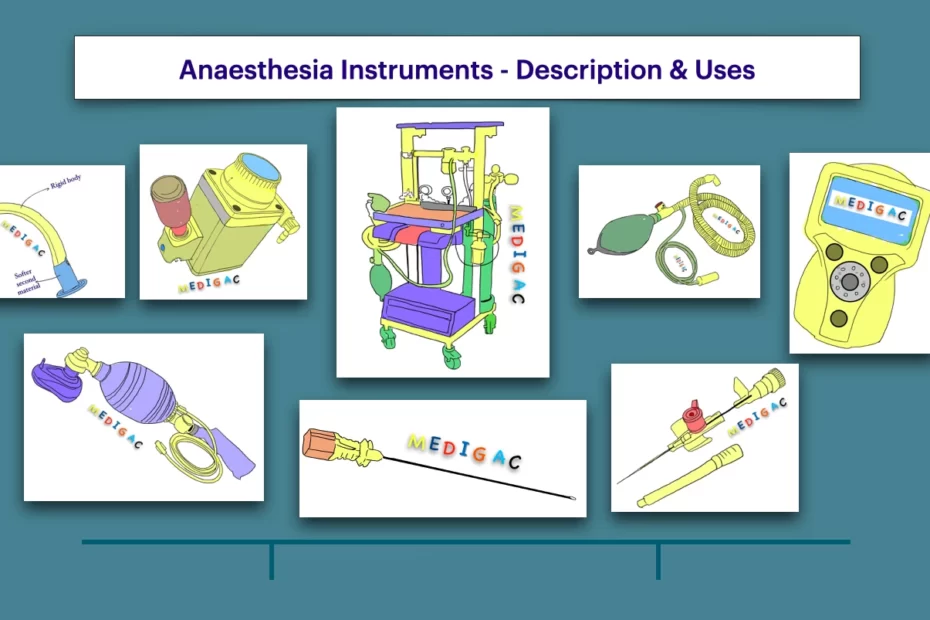We have made all the ANAESTHESIA Instruments full set or list with the Names, Description, Uses with Pictures. in you medical ward you will see all this instruments/equipments/devices. So full knowledge regarding all this devices is necessary for your medical and surgical practice and also during exams.
Anaesthetic Vaporizers

Description :
This device is composed of concentration dial, the bypass chamber, the vaporising chamber, the filter port and filter cap.
Uses :
1. Transformation : It helps to transfer anaesthetic agents which are in liquid forms into gaseous form.
—– Then controlling the concentration in which these are added to the fresh gas flow.
Artificial Resuscitator
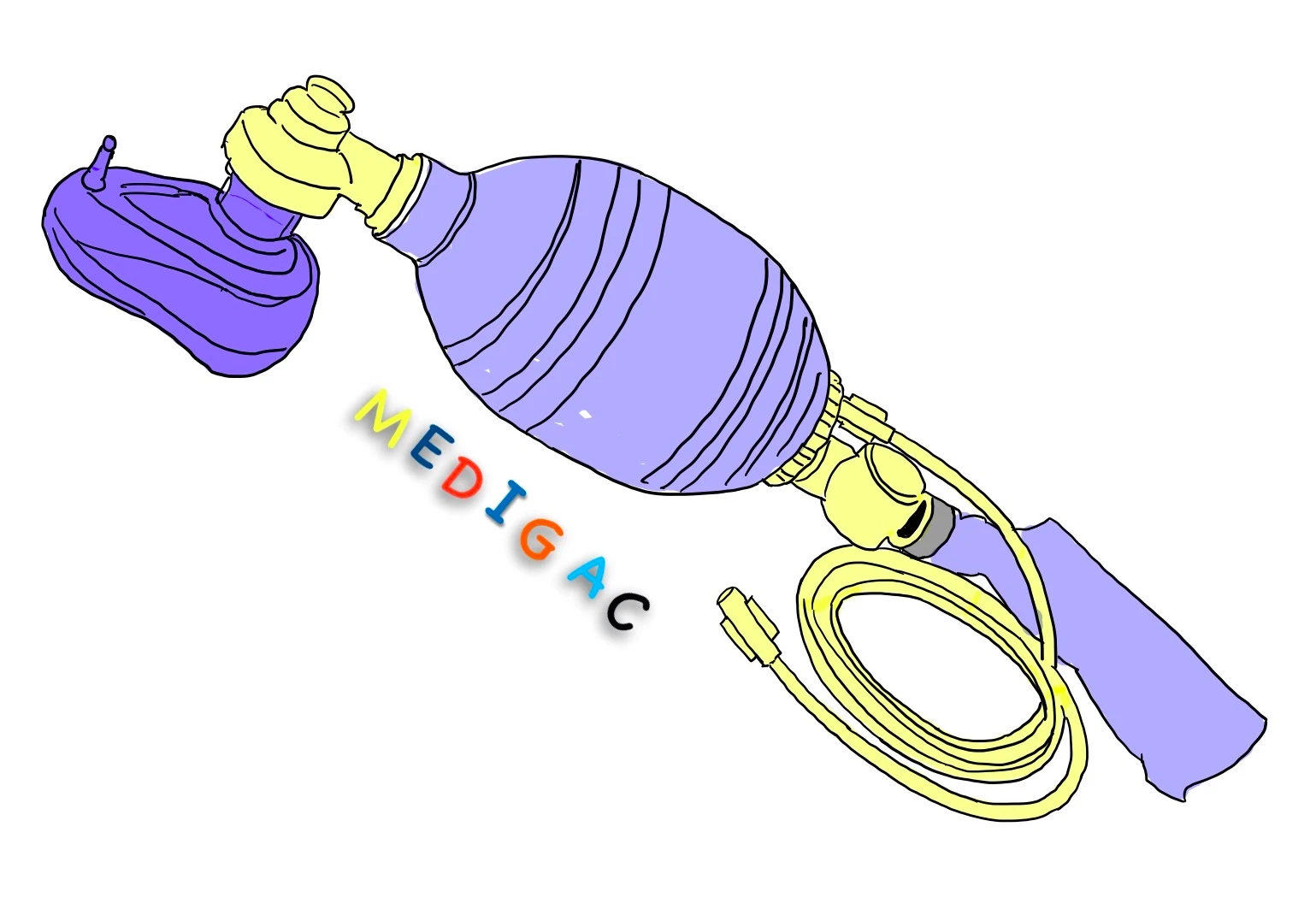
Description :
This is a device using positive pressure to inflate the lungs and unconscious person who is not breathing.
It has mainly 8 parts :
- Face mask
- Exhalation valve
- Over-pressure valve
- Spring-loaded PEEP valve
- Bag
- One-way valve
- o2 inlet and tubing
- Air inlet & pressure release valve
- Reservoir Bag
Uses :
1. Inflating the Lungs : This device is used to keep the constant oxygen supply and keep the person alive by inflating the lungs of an unconscious person.
Bain Circuit
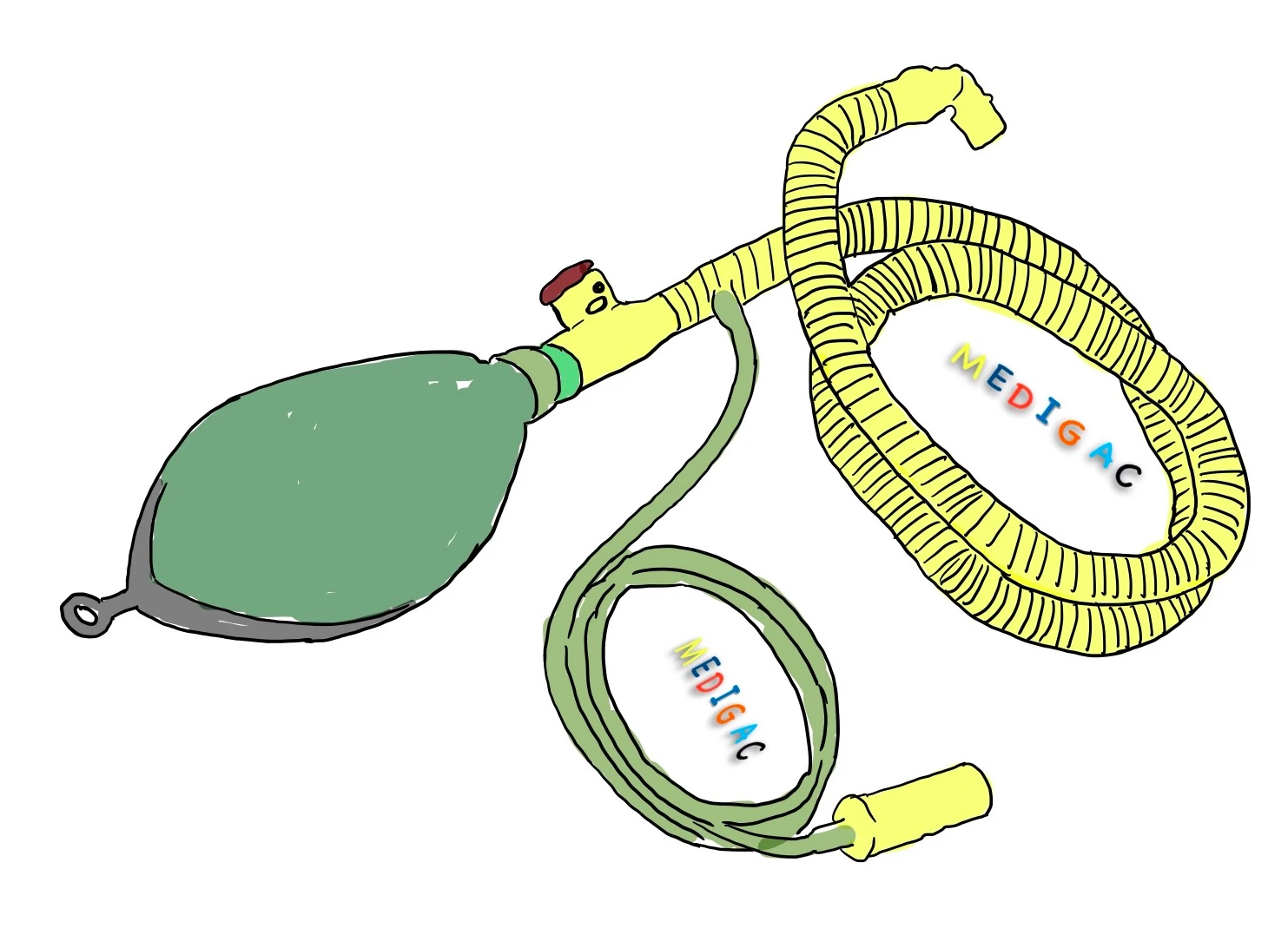
Description :
This device is a co-axial modification of the basic T-piece system, developed to facilitate scavenging of waste anaesthetic gases.
Uses :
1. Artificial Breathing : It helps to create a delivery system which connects the patient’s airway to the anaesthesia machine.
— And helps patients to breath in and out.
Continuous Flow Anaesthetic Machine/Boyle’s Machine
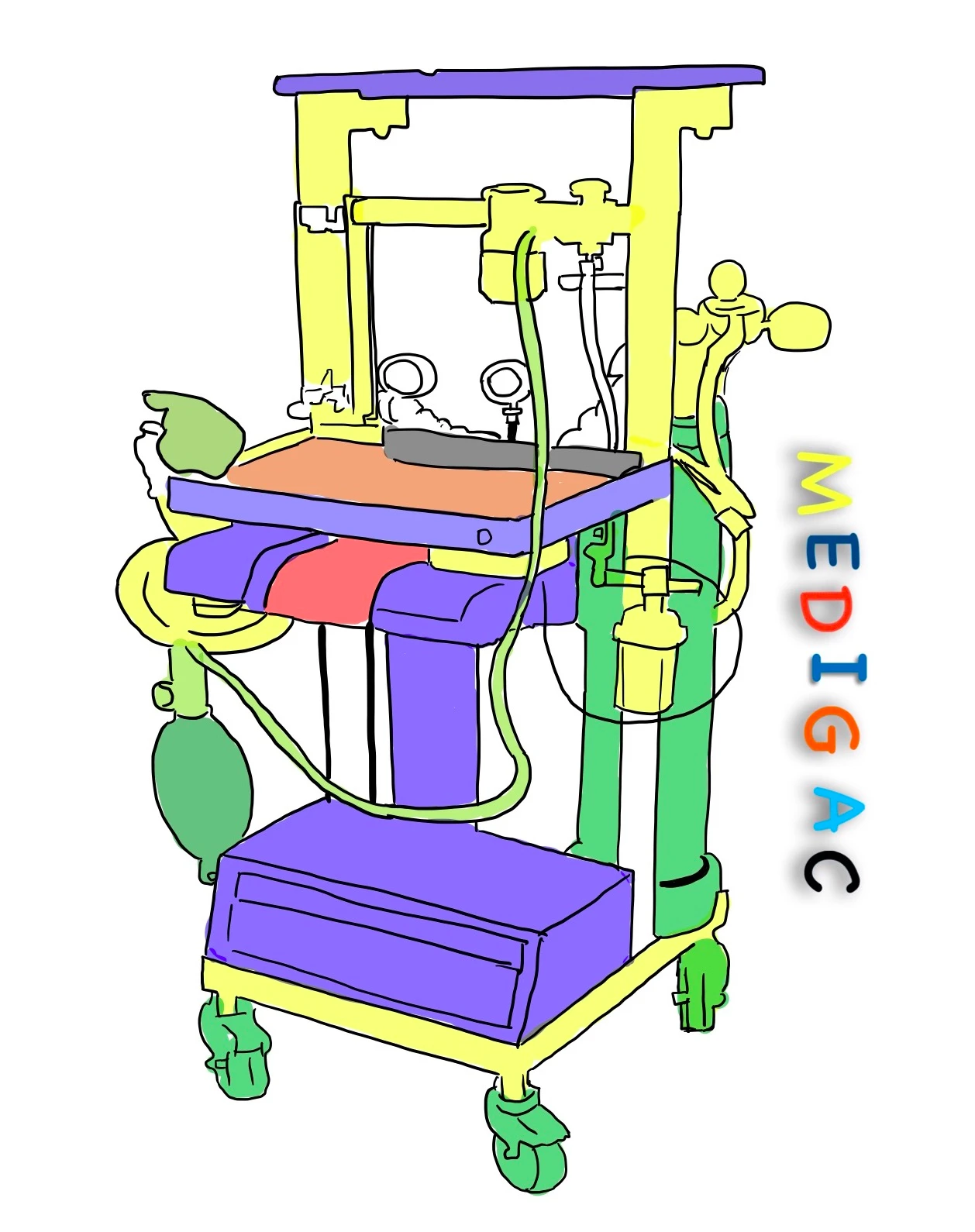
Description :
This device is made up of several parts :
- Ventilator
- Flow meter
- Bellow
- Vaporizer
- Corrugated tube
- APL valve
- Soda lime
- Scavenging system
Uses :
1. Delivering anaesthetic vapour : To provide accurate concentration of anaesthetic vapour with medical gases to the patients continuously at a safe pressure and flow.
Endoscope

Description :
This device is used to see inside of the body/organs.
It has mainly 5 parts :
- Eyepiece
- Opening for wires and instruments
- Flexible Shaft
- Flexible shaft transmitting light, air and water
- Flexible tip
Uses :
1. Viewing and Operating the Inner Structures : Normally it is used to view/operate the inner structures like organs, blood vessels of the body.
Various Endoscopies are :
—-Bronchoscopy
—-Laryngoscope
—-Oesophagoscopy
2. Taking Biopsy samples : It is also used to take Biopsy samples for examination purpose.
Endotracheal Tube
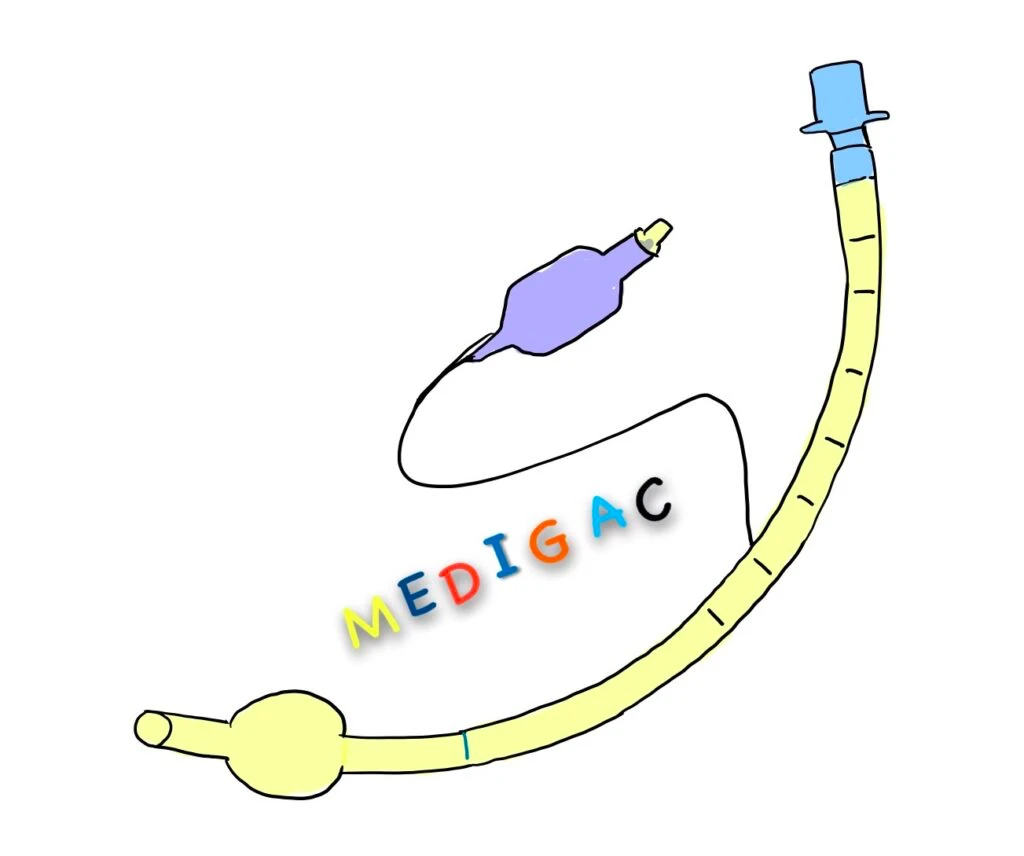
Description :
This is a flexible plastic tube which is placed inside the trachea via the mouth.
It has mainly 7 parts :
- 15 mm connector to oxygen source
- Spring loaded cuff inflation valve
- Pilot balloon
- Cuff inflation line
- Bevel
- Inflated cuff
- Murphy eye
Uses :
Used in purpose of mechanical ventilation :
- During tetanus
- Epiglottis and life threatening croup
- In Diphtheria
- In angioneurmtic oedema.
Epidural Catheter
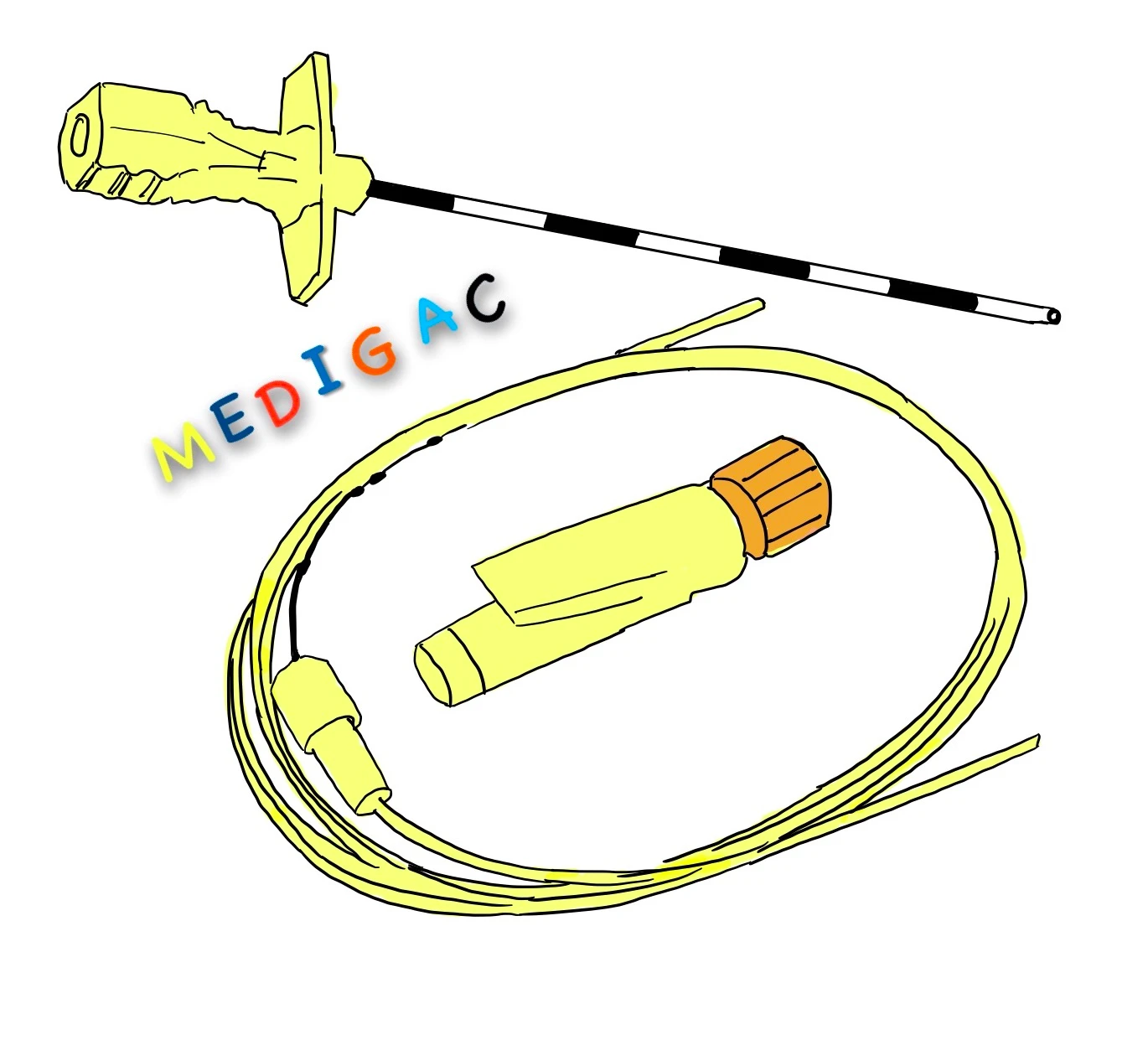
Description :
This device is compose of :
- One catheter
- One Trocar
- One stylet zea
- One Adapter
Uses :
1. Treatment of Painful Condition : Used to treat painful conditions which requires pain control for intensive physical therapy or joint mobilization.
Eschmann Stylet Gum Elastic Baugie

Description :
Bougie devices are made up of plastic and are long tube like structures.
Uses :
1. Endotracheal tube introducer : Used to facilitate difficult endotracheal intubation.
Guedel Airway/Oropharyngeal Airway

Description :
This device is made up of plastic and has mainly 3 parts:
- Soft Tip : Reduces risk of tissue damage
- Rigid Body : To maintain a patient airway
- Softer second material : Reduces the potential for dental damage
Uses :
1. Maintains patient’s airway : Used to open patient’s airway by preventing the tongue by covering the epiglottis.
HEPA Filter

Description :
This filters are made up of hundreds of thousands of fibreglass fibers.
—-Filter particles whose diameters are equal to 0.3 micometer
—-Also captures pollen, dirt, dust, moisture, bacteria, viruses.
Uses :
1. Filtering : The gases which are given to the patient can be filled by dust particles, so to filter out those dust particles we use HEPA filter.
Hypodermic Needle

Description :
Sharp pointed needle which is attached with the plastic body which has flange, plunger, luer lock.
Uses :
1. Venipuncture : In venipuncture process for taking blood form a vein.
2. Injecting substance : To Inject substances like medications.
Laryngeal Mask Airway
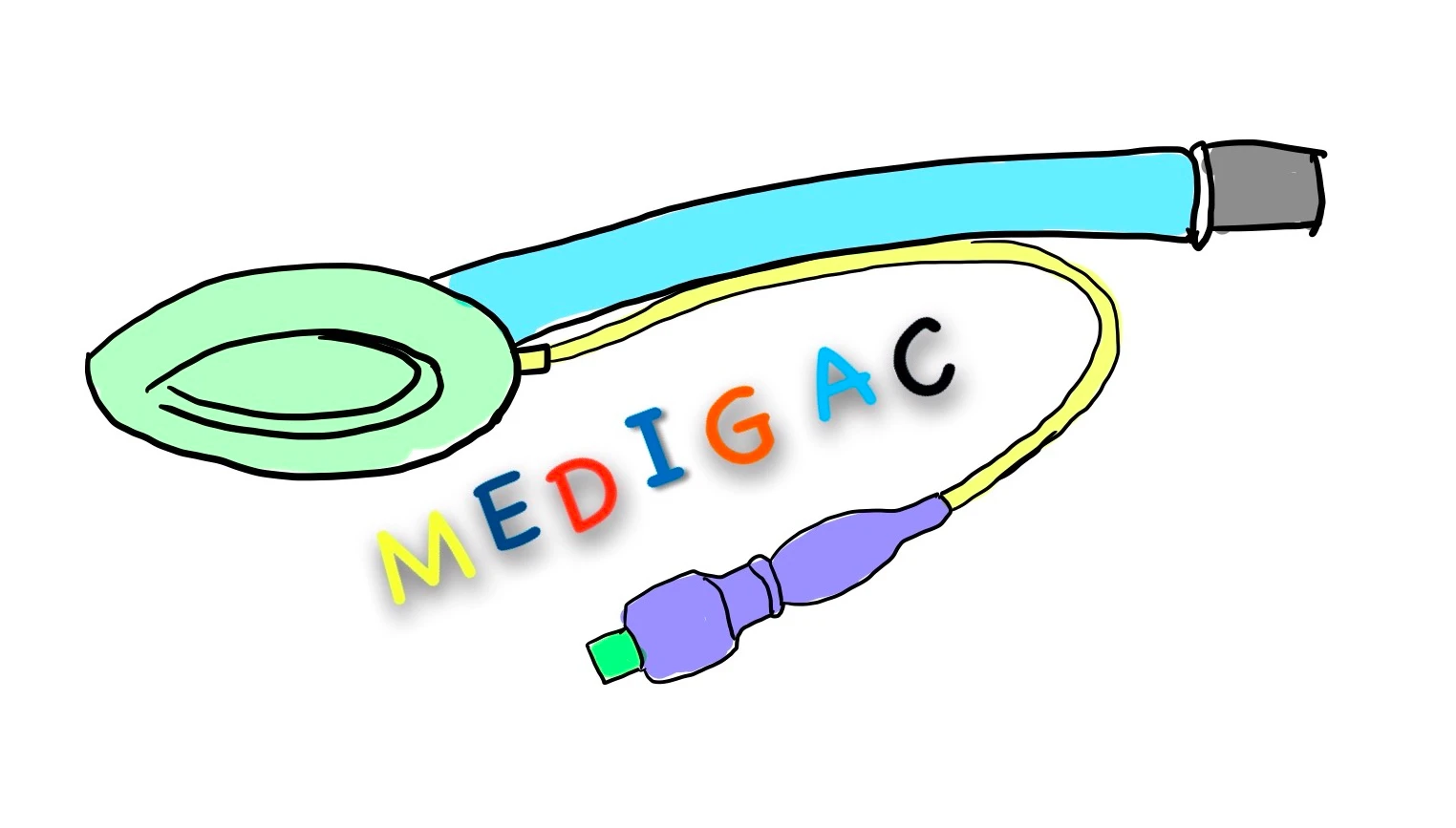
Description :
It has mainly 6 components :
- Dome
- Airway Tube
- 15 mm connector
- Inflation line
- Pilot balloon
- Cuff
Uses :
1. Unnecessary endotracheal intubation : This device is the appropriate choice when endotracheal intubation is not necessary.
- Obstruction by gag
- Excess airway secretions
- Poor surgical view
- Laryngospasm
Laryngoscope

Description :
Full metallic body and has mainly 6 parts :
- Handle
- Hook-on-base
- Horizontal flange
- web/vertical step
- Beak/tip
- Tongue/Spatula
Uses :
1. Laryngoscopy : to view the inner structures, samples and to perform endoscopic surgeries.
Mucus Sucker

Description :
It is made up of plastic and silicone tube . It is composed of mainly 4 parts :
- Mucus Reservoir
- Nose piece
- Silicone Tube
- Mouth-Piece
Uses :
1. Aspiration : To aspirate any fluids specially from respiratory pathway.
Nasal Oxygen Set
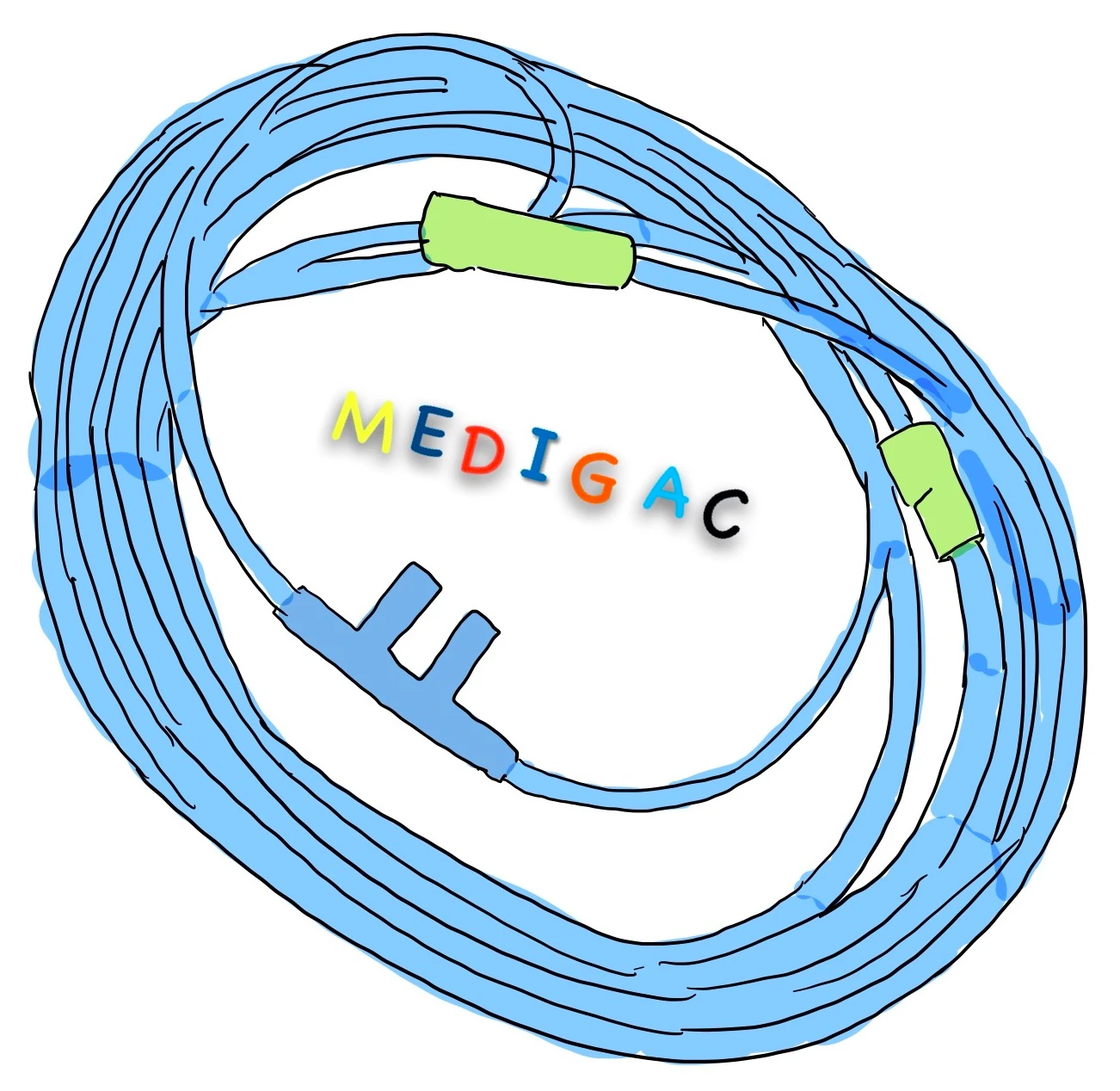
Description :
This device has mainly one parts : The Silicone Tube . This tube is attached with the oxygen face mask.
Uses :
Delivery of Oxygen to the patient :
1. Assist In Oxygen intake : To make the patient o take the oxygen more efficiently by providing gases into the mouth/nostrils.
Oxygen Mask

Description :
This device has mainly two parts : The Mask & The Silicone Tube
Uses :
1. Assist In Oxygen intake : To make the patient o take the oxygen more efficiently by providing gases into the mouth/nostrils.
2. Administration of aerosolized drugs : Some patients needs drugs in aerosolized or gaseous forms, there also we can use Oxygen Maska and Tube.
Peripheral Nerve Stimulator

Description :
Electronic device made up of plastic. Has a display to show result and some switches to control the device.
–Two wires gets out of this device to be placed on body surface.
Uses :
1. To locate the nerves : To assess neuromuscular transmission to provide NMBAs(Neuromuscular blocking agents) for blocking musculoskeletal activity.
Peripheral Venous Catheter

Description :
A sharp and pointed need is attached with the plastic body. There is a channel to control the blood flow.
Uses :
1. Vascular Access : To gain the vascular access for several purposes like :
- To provide IV fluids
- Taking of blood samples
- Drug administration
Spinal Needle
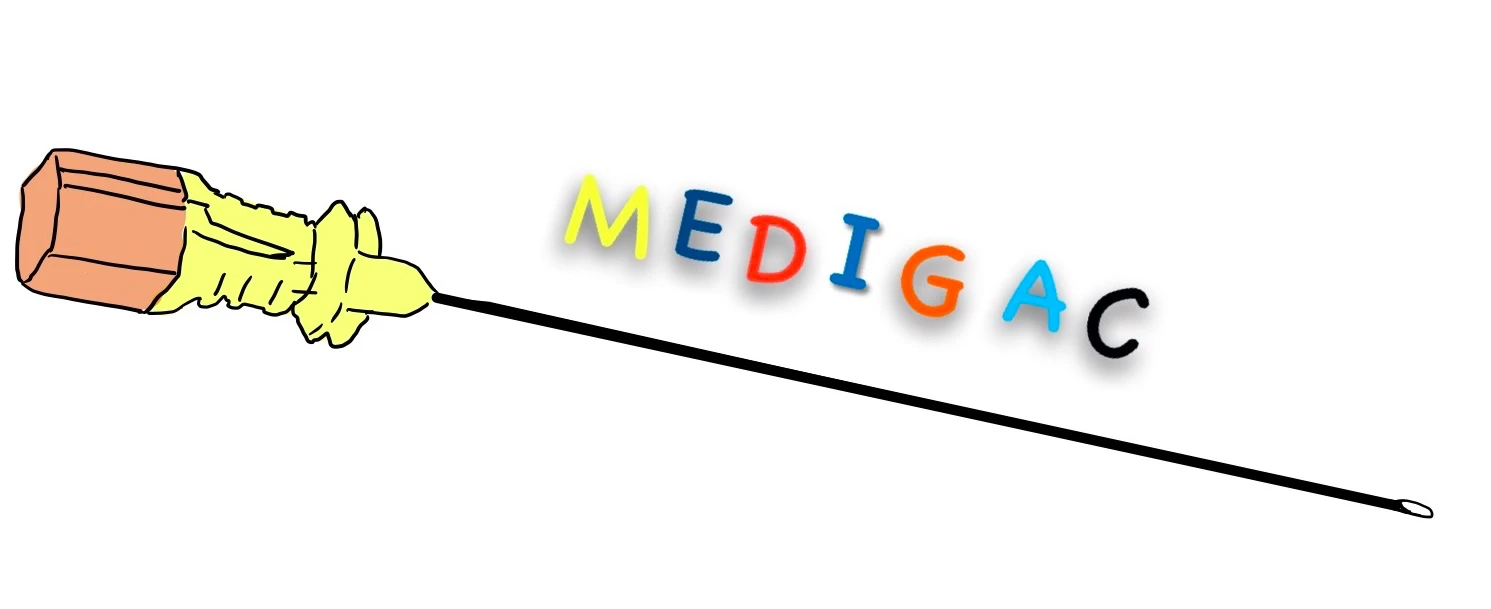
Description :
This needle has the shaft and the Stylet.
Uses :
1. Lumbar puncture : Used in Spinal anaesthesia, taking CSF sample etc.
Syringe

Description :
Hypo – Under || Dermic – The Skin
It has mainly parts :
- Plunger Flange
- Plunger Barrel Flange
- Barrel
- Seal
- Luer Lock
This made up of plastic and the metal needle. Markings are present on the Plastic Barrel
Uses :
1. Venipuncture : In venipuncture process for taking blood form a vein.
2. Injecting substance : To Inject substances like medications.
TOF(Train-of-four) Monitor

Description :
Electronic device made up of plastic. Has a display to show result and some switches to control the device.
–Two wires gets out of this device to be placed on body surface.
Uses :
1. To assess neuromuscular transmission after giving the Neuromuscular Blocking agents.
Tuohy Needle

Description :
This needle has 4 parts :
- Stylet
- Hub
- Wings
- Shaft with 1 cm markings
Uses :
1. Epidural Anaesthesia : Placed in epidural spaces to provide epidural anaesthesia.
Yankauer Suction Tube–

Description :
It has mainly 5 parts :
- Connector for vaccum
- handle
- Thumb-control alve
- catheter
- Tip
Uses :
For clearing mucous or any kind fo secretions by sucking mechanism.
